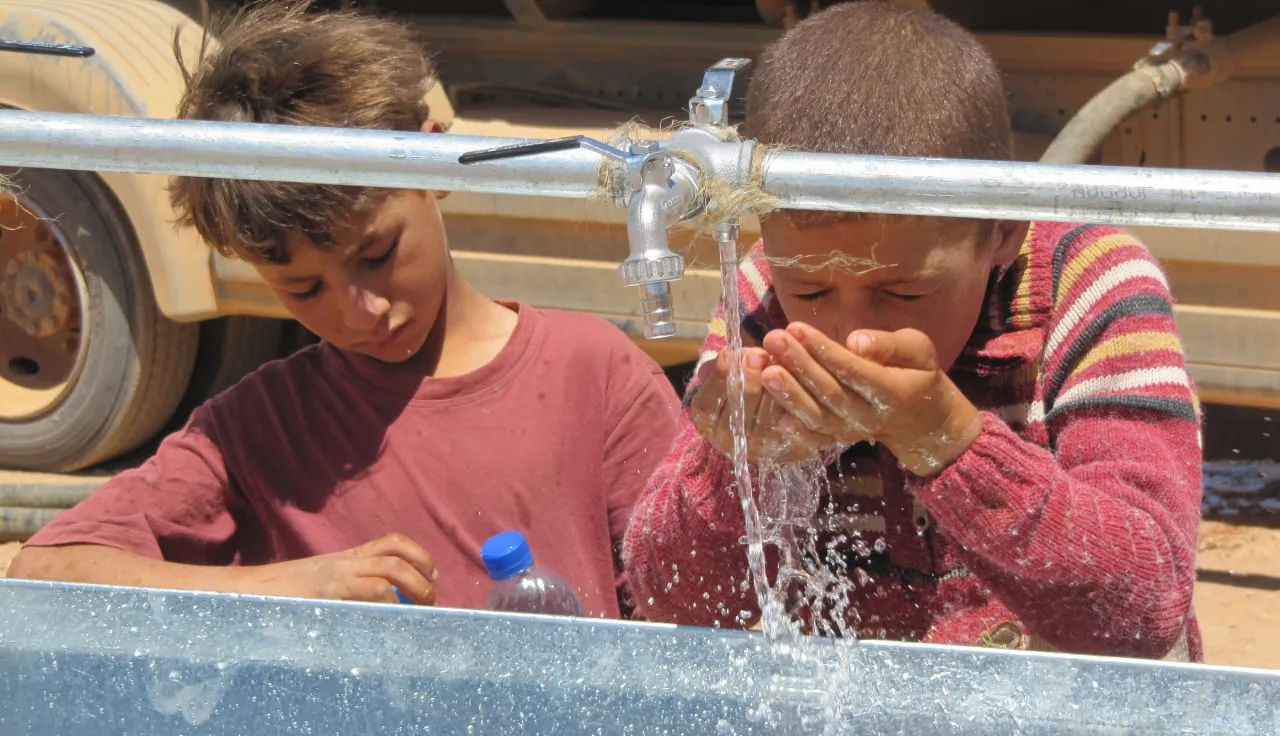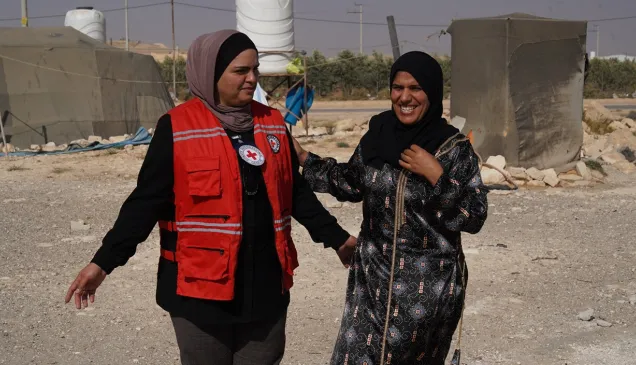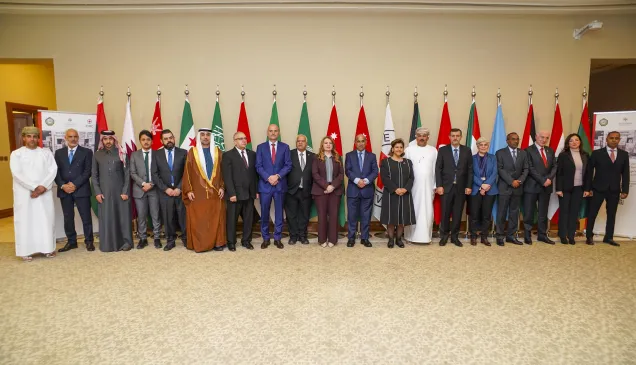The report underlines the learning generated by the program but also calls on local and international actors to recognize the specific needs and vulnerabilities of communities in the north of Jordan and the specific challenges linked to the provision of water supply.
The report highlights how the program has evolved from emergency interventions in transit sites to address the lack of water supply in local communities hosting refugees. ICRC’s water program was initiated as a response to the Syrian conflict and the influx of refugees and between 2014 and 2022 it intervened in 51 water facilities, benefiting 1.2 million Syrians and Jordanians. Key outcomes included the increase of water per capita share of 250% (from 32l to 80l/capita/day), reduction in non-revenue water and building resilience in the water system.
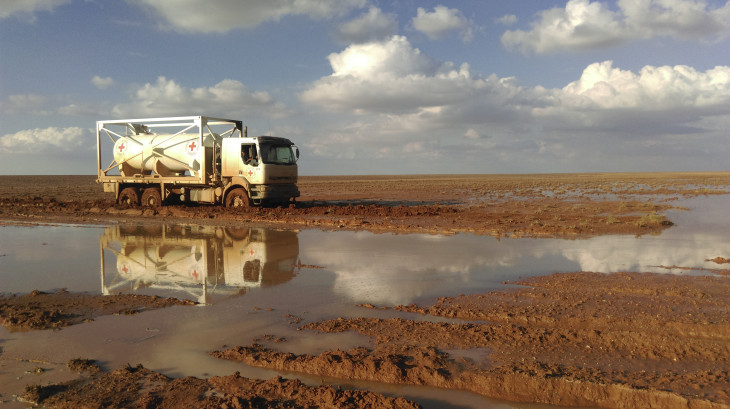
Rweished, Rukban camp, An ICRC convoy on its way to transit sites for water supply/ICRC
As Jordan experienced stabilization in terms of influx of refugees, the ICRC shifted its focus to sustainability, developing a capacity building program. A workshop building and training center was constructed in Hofa, Irbid Governorate aiming to enhance the operational capabilities and technical expertise of Yarmouk Water Company staff. Training sessions were designed and offered to O&M teams, focusing on good practices, corrective and preventive maintenance
The implemented water program intervened in a geographical and technical area where water authorities, development actors and financial institutions co-exist. With humanitarian funding declining, the ICRC hopes that actors with long-term presence and objectives would increase their support to rural communities, invest in O & M to prevent collapse of water infrastructure, and improve coordination among them with an ultimate goal to serve communities affected by conflict, and ‘leave no one behind’
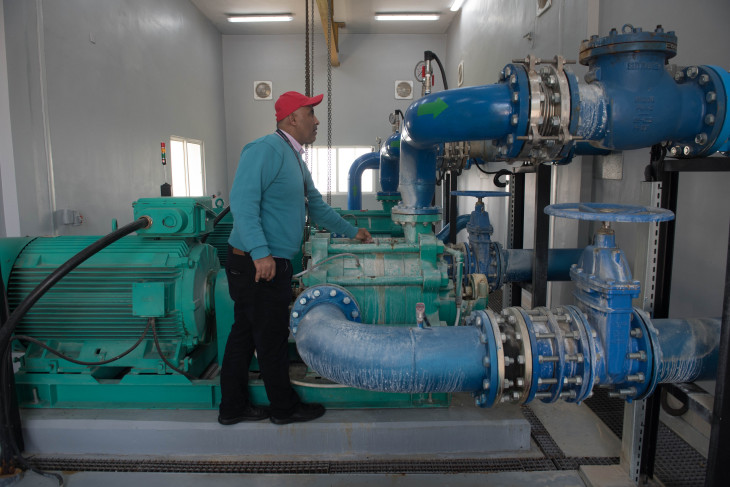
ICRC Engineer at one of the rehabilitated pumping stations in the North of Jordan/ICRC
In fact, over the past decade, the International Committee of the Red Cross (ICRC) has improved water access for host communities and Syrian refugees, particularly in the rural areas of northern governorates. Persistent challenges have been identified throughout this period, including the neglect of rural areas, concerns about the sustainability of water infrastructure due to inadequate Operation & Maintenance (O&M), and a need for stronger coordination among humanitarian and development actors
KNOW MORE ABOUT THE PROGRAM IN THIS VIDEO (ARABIC AND ENGLISH)

